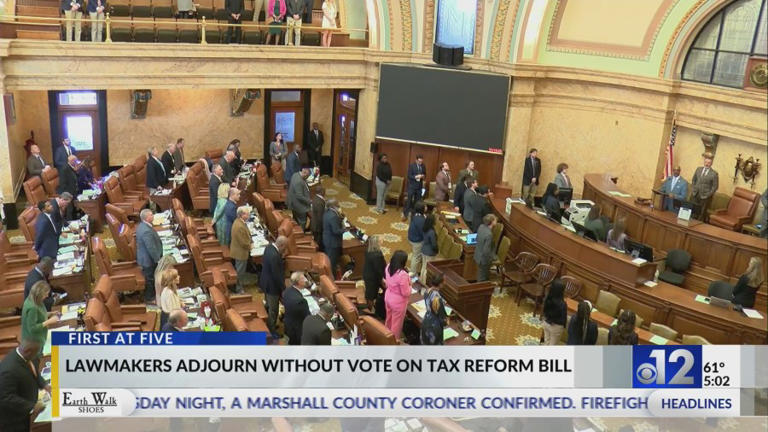Grants And Funding Opportunities For Eco-Friendly SMEs

Table of Contents
Identifying Relevant Grants and Funding Programs
Finding the right funding source is the first crucial step. A variety of programs offer grants and funding for sustainable SMEs, each with its own criteria and application process.
Government Grants and Incentives
Many national and regional governments offer substantial grants and incentives to encourage green business practices. These programs often target specific areas of environmental focus. For example:
- Renewable Energy Grants: Funding may be available for businesses investing in solar panels, wind turbines, or other renewable energy technologies. Check your local government website for specific programs. For example, the [insert example link to a relevant government website, e.g., US Department of Energy's website for renewable energy grants] offers a range of options.
- Waste Reduction Grants: Grants might support businesses implementing waste reduction strategies, such as recycling programs, composting initiatives, or the adoption of sustainable packaging.
- Sustainable Manufacturing Grants: Funding can be allocated to companies adopting eco-friendly manufacturing processes, reducing their carbon footprint, and minimizing environmental impact.
Eligibility criteria vary significantly. Factors such as business size, location, project type, and demonstrated environmental impact are commonly considered. Thoroughly review the specific requirements of each program before applying.
Private Sector Funding and Investment
Beyond government funding, the private sector plays a significant role in financing sustainable ventures.
- Venture Capital and Angel Investors: Numerous venture capital firms and angel investors actively seek investment opportunities in environmentally conscious businesses. These investors often prioritize companies with high growth potential and a strong commitment to sustainability.
- Impact Investing: Impact investing focuses on generating positive social and environmental impact alongside financial returns. This presents a significant funding source for SMEs with a demonstrably positive environmental impact.
- Crowdfunding Platforms: Platforms like Kickstarter and Indiegogo often feature campaigns from eco-friendly businesses, offering a direct avenue for securing funding from a broad base of supporters. These platforms are particularly suitable for businesses with innovative products or services.
- Corporate Social Responsibility (CSR) Programs: Many large corporations have established CSR programs that provide grants or partnerships to support sustainable initiatives. These programs often align with the company's core values and sustainability goals.
Foundations and Non-Profit Organizations
Numerous foundations and non-profit organizations dedicate themselves to funding environmental projects and supporting eco-friendly businesses. These organizations often specialize in specific areas:
- Environmental Conservation: Foundations focused on conservation may offer grants to businesses involved in protecting natural resources, biodiversity, or combating deforestation.
- Pollution Reduction: Organizations focused on reducing pollution might support businesses developing innovative solutions to reduce air, water, or soil contamination.
Each foundation has its unique application process and priorities. Research thoroughly to find foundations whose mission aligns with your business's goals.
Crafting a Compelling Grant Application
Securing funding requires a well-structured and persuasive grant application.
Understanding Grant Requirements
Before beginning your application, meticulously review the grant guidelines. Pay close attention to:
- Eligibility Criteria: Ensure your business meets all specified requirements.
- Project Proposal: Develop a clear and concise proposal outlining project objectives, methodology, budget, and anticipated impact.
- Sustainability Principles: Demonstrate a thorough understanding of sustainability principles and how your project contributes to environmental protection.
Showcasing Your Eco-Friendly Initiatives
Effectively communicate the environmental benefits of your business model using quantifiable data:
- Quantifiable Results: Present data demonstrating the positive environmental impact of your business. For example, quantify reductions in carbon emissions, waste, or water usage.
- Compelling Narrative: Craft a compelling story that resonates with grant reviewers, highlighting the unique value proposition of your business and its commitment to sustainability.
Financial Projections and Sustainability Plan
Include realistic financial projections and a comprehensive sustainability plan:
- Financial Viability: Demonstrate the financial viability of your project and its potential for long-term growth.
- Long-Term Goals: Outline your long-term sustainability goals, demonstrating a commitment to ongoing environmental responsibility.
Navigating the Application Process and Beyond
Securing funding is a process that requires dedication and strategic planning.
Building Relationships with Funders
Networking is crucial for securing funding:
- Industry Events: Attend industry events and conferences to connect with potential funders and learn about new funding opportunities.
- Strong Relationships: Cultivate strong relationships with potential funders through consistent communication and engagement.
Managing Awarded Funds
Responsible financial management is essential after securing funding:
- Transparency: Maintain transparency in your financial reporting and demonstrate responsible use of funds.
- Reporting Requirements: Adhere to all reporting requirements stipulated in the grant agreement.
Long-Term Sustainability and Growth
Reinvesting profits to support long-term sustainability is crucial for continued success:
- Reinvestment: Reinvest a portion of your profits into further sustainable initiatives to ensure long-term growth and environmental responsibility.
- Continued Growth: Develop strategies for achieving continued growth while maintaining your commitment to environmental protection.
Conclusion
Securing funding for your eco-friendly SME requires diligent research, a well-crafted application, and a strong commitment to sustainability. This article has outlined various sources of grants and funding opportunities for eco-friendly SMEs, including government programs, private sector investments, and foundation grants. Remember that a compelling application highlighting your business's positive environmental impact is crucial for success. Don't miss out on vital eco-friendly SME funding – explore your options now! Start your search for grants and funding opportunities for eco-friendly SMEs today!

Featured Posts
-
 Governments Spring Budget Fails To Impress Voters
May 19, 2025
Governments Spring Budget Fails To Impress Voters
May 19, 2025 -
 Swissquote Bank Euro Strength Against A Weakening Us Dollar
May 19, 2025
Swissquote Bank Euro Strength Against A Weakening Us Dollar
May 19, 2025 -
 Hernando Mississippi Impact Of Potential Income Tax Elimination
May 19, 2025
Hernando Mississippi Impact Of Potential Income Tax Elimination
May 19, 2025 -
 Royal Mails New Stamp Prices Full Details Of The April 7th Hike
May 19, 2025
Royal Mails New Stamp Prices Full Details Of The April 7th Hike
May 19, 2025 -
 A Deep Dive Into The Chronology Of Water Review And Analysis Of Kristen Stewarts Role
May 19, 2025
A Deep Dive Into The Chronology Of Water Review And Analysis Of Kristen Stewarts Role
May 19, 2025
